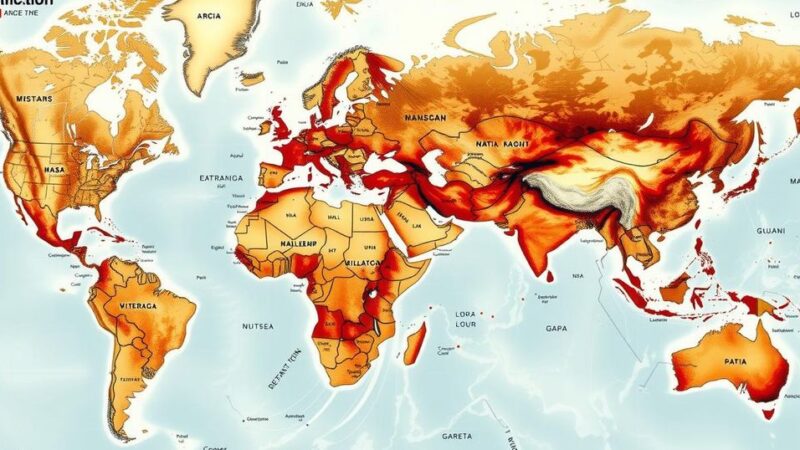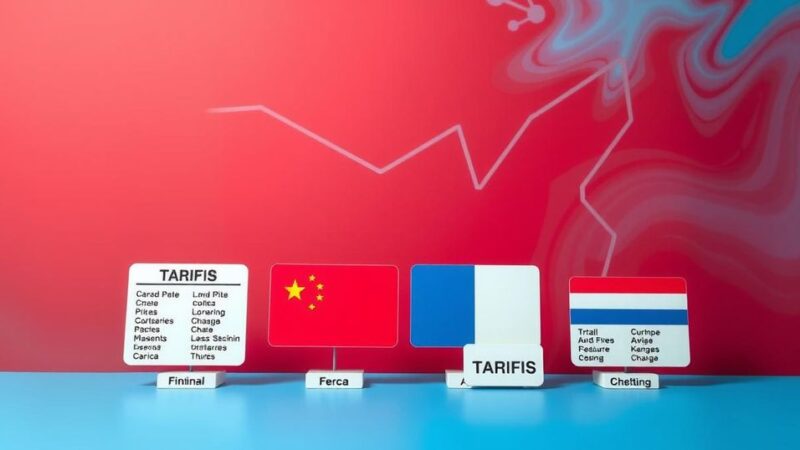The U.S. and Israel are exploring the relocation of 2 million Gazans to Syria, Sudan, Somalia, and Somaliland. Initial responses indicate significant opposition from these nations, complicating potential agreements. Trump’s controversial plan has faced widespread rejection from Arab states, and key officials have voiced strong detachment from the proposals, further exacerbating the situation as diplomatic relations remain fraught and complex.
Amid ongoing challenges, the United States and Israel are exploring the possibility of relocating approximately 2 million Gazans to countries such as Syria, Sudan, Somalia, and Somaliland. This initiative is part of continued discussions following U.S. President Donald Trump’s controversial plan to take control of Gaza, which he characterized as a means to offer Gazans a more favorable living environment. Initial responses suggest that the attempts to relocate the Gazan population might face significant obstacles.
Trump has previously stated that once evacuated, Gazans may not return post-reconstruction, a claim met with substantial opposition from various Arab nations. These states have expressed their refusal to accept Gazans, contradicting Trump’s assertions on the matter. Furthermore, the relationships between the potential receiving nations and Israel remain intricate and fraught with historical tensions, complicating the prospect of successful negotiations.
Reports from CBS News indicate that the Trump administration made outreach efforts to the newly established Syrian government, led by a president previously designated a terrorist by the U.S. This leader, President Ahmad al-Shara, has openly denounced the evacuation plan, labeling it as a “serious crime that will ultimately fail.” In contrast, a senior Syrian official denied any knowledge of such discussions, reflecting the ongoing tensions between Syria and Israel.
Despite Sudan’s previous participation in the Abraham Accords, the nation is engulfed in civil conflict and has not cultivated strong diplomatic ties with Israel. Sudan’s military chief, Gen. Abdel-Fattah Burhan, has categorically rejected the relocation proposal, affirming that Palestinians should not be displaced under any circumstances. Efforts by the U.S. to provide military support and reconstruction were similarly dismissed by Sudanese officials.
Somalia’s historical support for Palestinian rights poses another hurdle for relocation proposals. The Somali ambassador to the U.S. asserted that there had been no communication from either the U.S. or Israel regarding the relocation of Palestinians to Somalia. Furthermore, although there were reports of interest in establishing diplomatic relations with Israel prior to the conflict, these discussions never materialized.
The U.S. and Israel also approached Somaliland, a region with declared independence since 1991, but lacking widespread recognition. Somaliland is strategically positioned near the Horn of Africa and has maintained relative stability. Reports indicate potential Israeli military interests in the region to combat threats from Houthi forces. An American official noted that there are ongoing quiet discussions with Somaliland regarding a variety of support mechanisms in exchange for international recognition.
These considerations highlight the multifaceted and uncertain nature of potential relocations for Gazans. The complexities of international relations in this context continue to pose significant challenges to any ambitions for resettlement while reflecting the broader geopolitical landscape in the region.
The ongoing search for suitable relocation sites for Gazans presents significant diplomatic challenges for the U.S. and Israel. Reactions from Syria, Sudan, Somalia, and Somaliland underscore the complexities of engaging these nations, each with its own political dynamics and historical ties to both the U.S. and Israel. As negotiations unfold, the reluctance of these countries to accept displaced Palestinians highlights the humanitarian and geopolitical hurdles that remain in addressing this crisis effectively.
Original Source: allisrael.com






